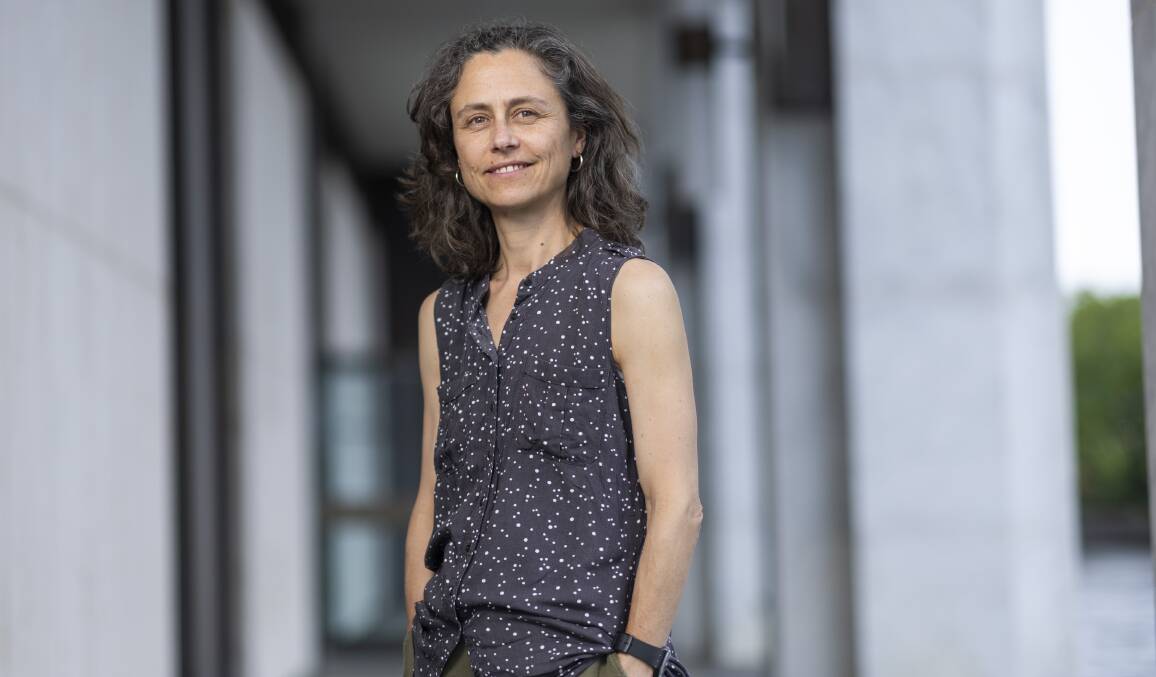Some people were never meant to do just one thing. That's what Alice Garner tells herself every time she finds herself going off on one of life's many tangents.
An actor who appeared on Australian screens throughout the 1980s, 90s and early 2000s, she could very well have reached for the stars and shipped herself off to Hollywood, like so many other young Aussie actors.
But Garner chose a more ... obscure path. And that's Dr Garner to you - she completed her PhD in French history at around the same time she was appearing in SeaChange and The Secret Life of Us, and spent years weaving academia around acting.

She made her acting debut as a child in the 1982 film Monkey Grip, based on the novel by her own mother, Helen Garner.
At a certain point, she says, she grew weary of being at the whims of an industry notorious for uncertainty, disappointment and lots and lots of waiting. Acting, that is, not academia, although it has its own drawbacks.
"I reached a point, I think, in my 30s, where I was sick of the thing that comes with acting, of being constantly waiting for other people's decisions, and feeling quite powerless in many ways," she says.
"And I thought, you know what? I'm over this, and I wasn't really willing to go all out and sleep on couches in LA."
We're speaking over tea at the National Library of Australia, where Dr Garner the academic has fetched up on a fellowship.
She's researching the life of Mavis Robertson, best known for her pioneering role in compulsory superannuation and for co-founding the Mother's Day Classic fun run.
Having discovered the satisfaction of recording people's whole-of-life oral histories as part of a previous project, Garner is now exploring how to tell someone's life story as an audio documentary.
"People are actually starting to realise now the potential of superannuation, not only at a personal level, but at a societal level," she says.
"It wasn't the super itself that particularly interested me, because I'm not really a financially-minded person. But I got curious when I learned that back in the 50s, she was actually a longtime member of the Communist Party and she had, as a young woman in her 20s, taken groups of Australians through China and through the Soviet Union, Trans-Siberian Railway to these big world peace festivals and things like this.
"Also she was behind the scenes ... in the Vietnam moratorium planning, in Palm Sunday rallies, a whole bunch of peace activism moments and campaigns. And I thought, that's a life that lends itself to this sort of treatment where you get an individual story, but it takes you into important moments in Australian history."
Garner's own interests have never lent themselves to a life in solid academia. After completing her doctorate, she thought she might do a project on the history of hitchhiking, and the shifting perspectives of the practice over time. But when she went to apply for research funding, it was made clear to her that she needed to stick as closely as possible to her own track record. Her thesis had focused on perceptions of the beach and ocean in a French fishing village.
She'd already decided she was too attached to Melbourne and family to be able to focus more fully on French history. But that experience then led her, tangentially, to co-author a history of the Fulbright exchange between Australia and the US in 2018.
"I recorded a whole lot of whole-of-life interviews with Fulbright scholars - they're all in the [National Library] collection now."
It was also, in a sense, the seed of her current project on Mavis Robertson. She was always wistful that the life stories she'd recorded were only ever mined for snippets here and there. "You just couldn't do them justice in any form," she says.
She's also played the cello since she was 10, is part of a trio called Sunshine Tip, and used her time in lockdown in Melbourne to teach herself audio engineering. In this project, all her interests are finding a way to coalesce into something entirely different - the way she's always done it.
- Alice Garner will be speaking about her research at the NLA, November 23 at 12.30pm. nla.gov.au.
We've made it a whole lot easier for you to have your say. Our new comment platform requires only one log-in to access articles and to join the discussion on The Canberra Times website. Find out how to register so you can enjoy civil, friendly and engaging discussions. See our moderation policy here.







